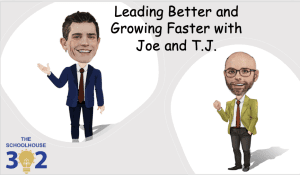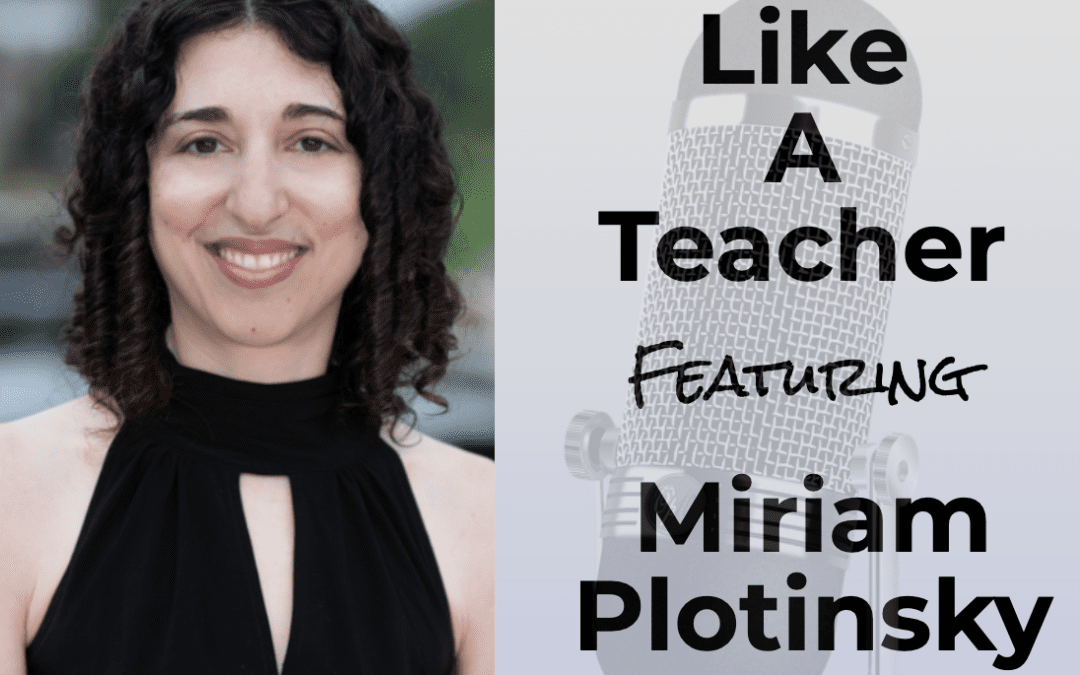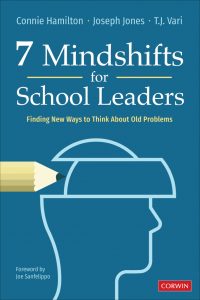
Season 5, Episode 3 of the FocusED School Leadership Podcast with Guest William Parker
Motivation, Action, Courage, and Teamwork for School Leaders with William Parker
This is Season 5, Episode 3 of FocusED, and it features our guest, William Parker. It was originally recorded in front of a live audience in Delaware and provided as a professional development experience in collaboration with the Delaware Department of Education, Wilmington University, and The School House 302. Don’t miss what Will Parker says about effective school leadership, motivation in schools, taking action as a school leader, and so much more.
_________________________________________
William Parker Brings a Tons of Experience to FocusED Listeners
William D. Parker is the Founder of Principal Matters. He’s an educator, author, speaker, and executive coach who uses his expertise in school culture, leadership, and communication to equip educators with solutions and strategies for motivating students, inspiring teachers, and reaching communities.
An Oklahoma educator since 1993, he was named Broken Arrow Public School’s South Intermediate High School Teacher of the Year in 1998. He became an assistant principal in 2004 and was named the Oklahoma Assistant Principal of the Year by the National Association of Secondary Principals in 2012.
As principal of a Title I school, his school’s innovative approaches to collaboration, remediation, and mentoring resulted in marked improvements in student performance.
For six years, he served as the executive director of Oklahoma’s Association of Secondary Principals and the Oklahoma Middle-Level Education Association. As founder of Principal Matters, he provides virtual leadership academies, masterminds, executive coaching, and keynote presentations to equip and inspire educators.
His podcast, Principal Matters: The School Leader’s Podcast, has more than 1 million downloads with more than 360 episodes available. He’s the author of Principal Matters, Messaging Matters, and Pause. Breathe. Flourish.
FocusED Show Notes with William Parker
Will starts with a vulnerable story about his second year as a school leader and almost not making it because of the practically impossible nature of it. Don’t miss the part about the letter that he wrote to himself.
Will dives into the importance of self-care. If the leader runs out of energy, there’s no capacity to continue.
We talk about habits and lowering the bars of resistance. TJ asks about decision-making fatigue.
Don’t miss what Will says about asking for help and networking (borrowing ideas).
You’ll love the story about the composer and his response to preparing for a season of hard work.
His insight about “the capacity to sustain” is important for new leaders.
Joe asks about mindset and perspective, and Will responds with the dynamics of overcoming skill and will problems.
“Who else can I reach out to for help in this area.” This is a prompt that Will uses when he’s reaching his limit.
“One rake at a time.” This is a saying that Will uses to ensure that he’s taking small steps forward.
Will brings up Harry Wongs’ First Days of School as a go-to for every teacher every year.
Will tells us that he takes a ton of leadership lessons from The Lord of the Rings.
Joe digs deeper into instructional leadership books, and Will calls to attention Transforming School Culture by Anthony Muhammad. He also talks about Jimmy Casas’ book Culturize.
Will mentions Hidden Brain and Guy Kawasaki’s podcasts as important to him for learning.
Don’t miss Will’s reflection questions for when he reads and learns.
Will ends with two contradictory statements that are both true. You are less important than you think you are. You matter more than you think. You want to hear what he means by this.
Books that William Parker Mentions on FocusED
Tiny Habits by BJ Fogg
Atomic Habits by James Clear
Think Again by Adam Grant
You’re the Principal Now What by Jen Schwanke
Platform: Get Noticed in a Noisy World by Michael Hyatt
Related School Leadership Content Based on This Show
Our interview with Jimmy Casas, an author Will mentions on the show.
_________________________________________
Thanks for listening to FocusED, an educational leadership podcast brought to you by TheSchoolHouse302 @ theschoolhouse302.com, where we publish free leadership content. Go to the site, subscribe, and you’ll get all of our content sent directly to your email.
FocusED is your educational leadership podcast where our mission is to dissect a particular focus for teachers and school leaders so that you can learn to lead better and grow faster in your school or district. Let us know who you would like to hear from next.







 7 Mindshifts for School Leaders: Finding New Ways to Think About Old Problems.
7 Mindshifts for School Leaders: Finding New Ways to Think About Old Problems. 


